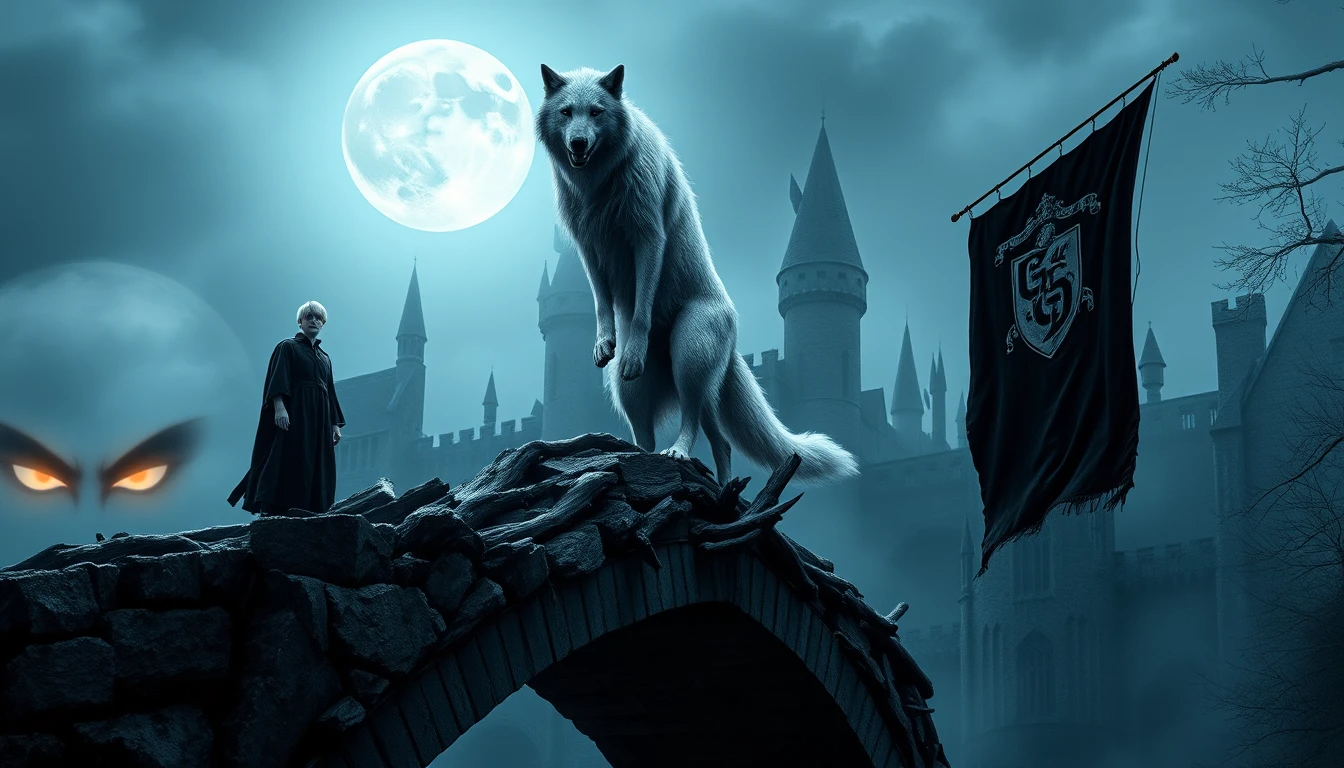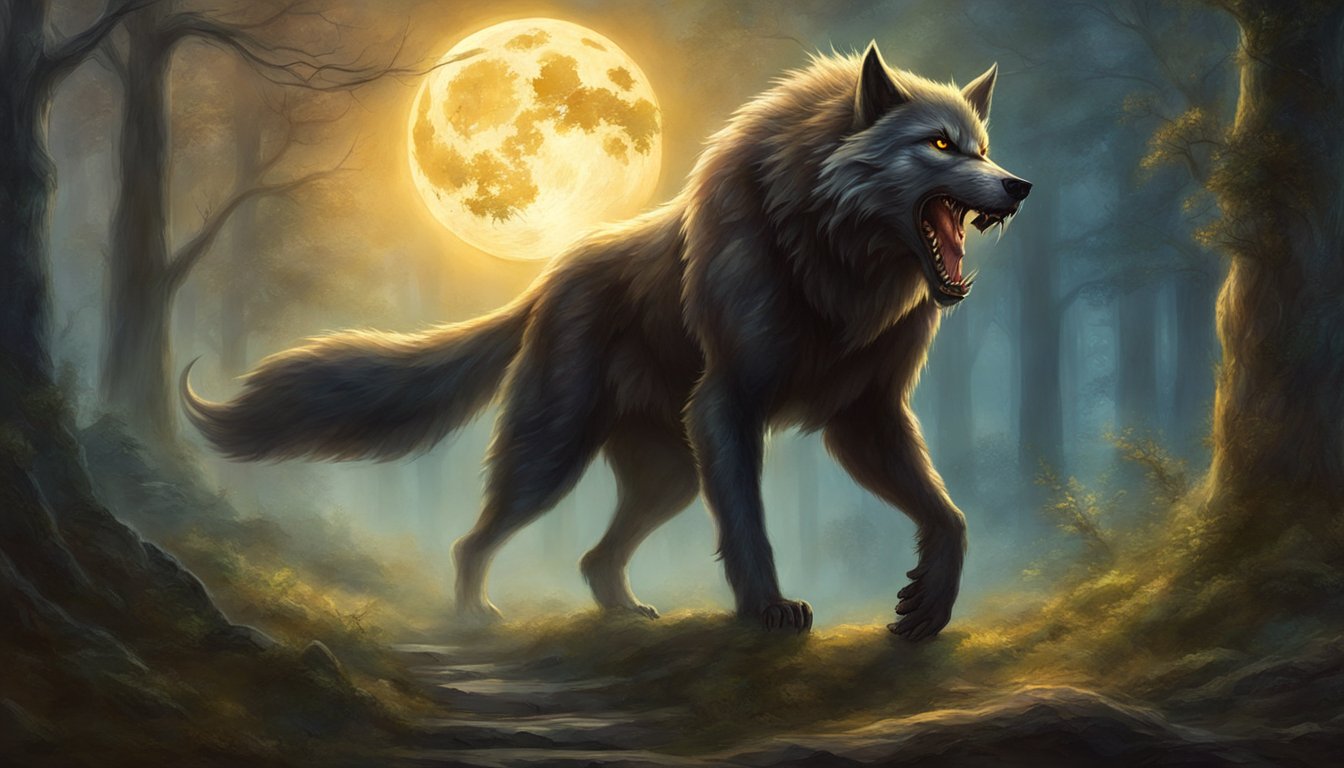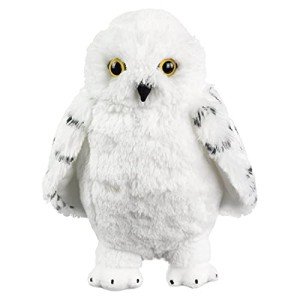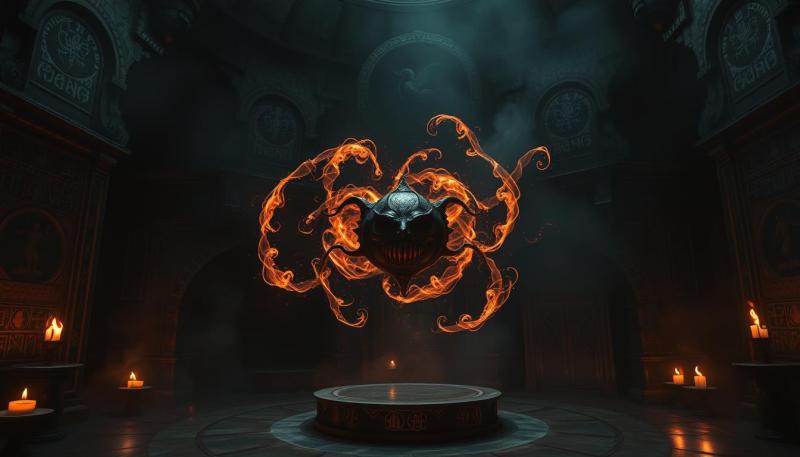
Werewolves are a fascinating part of the Harry Potter universe. These magical creatures transform into wolves during the full moon, causing fear and danger. In the wizarding world, werewolves face many challenges.
Werewolves in Harry Potter are people infected with lycanthropy, a condition that forces them to change into wolves every full moon. This transformation is painful and causes the person to lose control. Wizards and witches can become werewolves if they are bitten by one during its wolf form.
The Harry Potter series shows how werewolves are treated unfairly in the magical world. They struggle to find jobs and are often shunned by other wizards. Remus Lupin, a key character, helps readers understand the difficulties werewolves face in their daily lives.
Key Takeaways
- Werewolves transform during full moons and lose control of their actions
- Lycanthropy is spread through bites from transformed werewolves
- Werewolves face discrimination and challenges in wizarding society
The Biology and Mythology of Werewolves
Werewolves are fascinating creatures that blend human and wolf characteristics. Their biology and mythology involve complex transformations, lunar cycles, and unique life cycles.
Lycanthropy and Transformation
Lycanthropy is the condition that causes humans to transform into werewolves. You can become a werewolf through a bite from another werewolf. During the transformation, your body changes dramatically.
Your bones reshape, and fur grows all over your skin. Your face elongates into a snout, and your teeth sharpen into fangs. This process is often described as extremely painful.
When transformed, you look almost identical to a regular wolf. The main difference is in behavior - werewolves are much more aggressive and dangerous than normal wolves.
Full Moon and Werewolves
The full moon plays a crucial role in werewolf transformations. When the full moon rises, you lose control and change into your wolf form.
You can't resist this change - it happens whether you want it to or not. During the full moon, you lose your human mind and become a violent creature.
Many myths say silver bullets can kill werewolves. This isn't true, but silver does have some effect. A mix of powdered silver and dittany can help heal werewolf bites.
Werewolf Life Cycle and Offspring
Werewolves have a complex life cycle. You spend most of your time as a human, only changing during full moons.
It's unclear if werewolves can have children who inherit the condition. Some stories suggest werewolf traits can be passed down, while others say you can only become a werewolf through a bite.
When not transformed, you might show some wolf-like traits. You might have sharper senses or a preference for rare meat. Your personality might also become more aggressive or moody around the full moon.
Werewolves in the Harry Potter Universe
Werewolves play a significant role in the wizarding world. These beings transform into wolf-like creatures during the full moon. They face discrimination and challenges in magical society.
Harry Potter Hermione Plush Cuddly Stuffed Animal
Snuggle up with your favorite witch and bring a little magic to your day!
Product information
$17.75 $13.31
Product Review Score
4.66 out of 5 stars
77 reviewsProduct links
Remus Lupin's Story
Remus Lupin is a key werewolf character in Harry Potter. He was bitten as a child by Fenrir Greyback. Despite this, Lupin attended Hogwarts and became a talented wizard.
As an adult, Lupin joined the Order of the Phoenix. He taught Defense Against the Dark Arts at Hogwarts. His condition made it hard to keep jobs and relationships.
Lupin struggled with self-acceptance. He feared passing his condition to others. This led him to push away loved ones at times. His friends and wife Tonks helped him find belonging.
Fenrir Greyback and the Dark Arts
Fenrir Greyback is a vicious werewolf who embraces his condition. He purposely bites and infects others, especially children. Greyback allied with Lord Voldemort and the Death Eaters.
You can see Greyback's cruelty in his attacks on people like Bill Weasley. He uses his werewolf strength even when not transformed. Greyback represents the dangers of unchecked werewolf aggression.
His actions increase fear and prejudice against all werewolves. This makes life harder for peaceful werewolves like Lupin.
Werewolves and the Second Wizarding War
Werewolves played a role on both sides of the Second Wizarding War. Some, like Lupin, fought against Voldemort with the Order of the Phoenix. Others joined the Dark Lord's forces.
Voldemort promised werewolves more rights and freedom. This appealed to those mistreated by wizard society. Greyback led many werewolves to support the Death Eaters.
During the Battle of Hogwarts, werewolves fought on both sides. Lupin died defending the school. Greyback attacked students before being defeated. The war highlighted the divided loyalties among werewolves.
Social Implications and Magical Governance
Werewolves face many challenges in the wizarding world. Laws and social attitudes make life difficult for those with lycanthropy. Some options exist to manage the condition, but stigma remains widespread.
Werewolf Registry and Legal Status
The Ministry of Magic requires werewolves to register with the Werewolf Registry. This tracks werewolves and restricts their rights. You must report your condition and movements to the government.
The Department for the Regulation and Control of Magical Creatures oversees werewolf laws. These laws make it hard for werewolves to find jobs. Many end up poor or desperate as a result.
A Werewolf Capture Unit exists to control werewolves seen as dangerous. This reinforces the idea that all werewolves are threats.

Stigma and Discrimination
Werewolves face widespread prejudice in wizarding society. Many view them as monsters, not people with an illness. This leads to social isolation and limited opportunities.
You may struggle to make friends or find romantic partners as a werewolf. Some wizards refuse to associate with werewolves at all.
Schools and workplaces often discriminate against werewolves. You might be denied admission or fired if your condition is discovered.
Potions and Treatment
The Wolfsbane Potion helps control werewolf transformations. It lets you keep your human mind during the full moon. But the potion is complex and expensive to make.
Without the potion, you become a wolf mentally as well as physically. This makes you dangerous to others. Safe spaces to transform are important.
No cure for lycanthropy exists yet. Research continues, but progress is slow. Changing social attitudes may be as important as medical advances for improving werewolves' lives.






